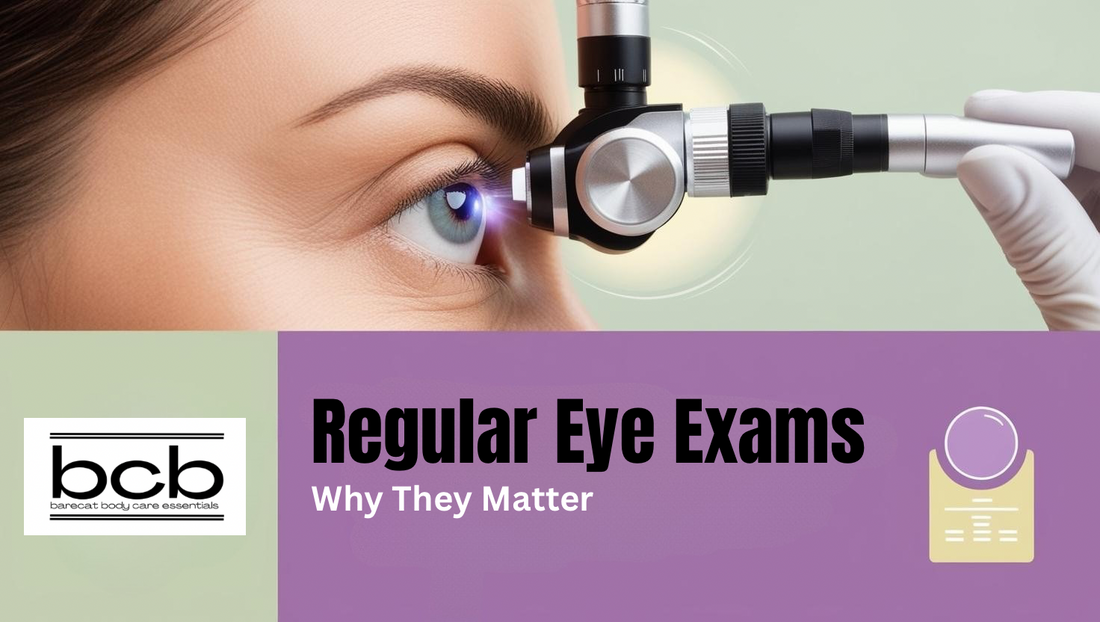
The Importance of Regular Eye Exams: What You Need to Know
Share
Why Regular Eye Exams Are Essential
Many people only visit an eye doctor when they notice vision problems, but regular checkups are just as important as any other health screening. Eye exams can detect problems before symptoms appear, allowing for early treatment and preventing long-term damage.
What Eye Exams Can Detect
Routine eye exams can identify:
• Refractive Errors – Conditions like nearsightedness, farsightedness, and astigmatism.
• Glaucoma – A condition that damages the optic nerve, often without early symptoms.
• Cataracts – Clouding of the eye’s lens that can lead to vision loss.
• Diabetic Eye Disease – High blood sugar levels can affect eye health.
• Macular Degeneration – A leading cause of vision loss in older adults.
Even if you don’t have symptoms, these conditions can develop silently. That’s why early detection through an eye exam is crucial.
How Often Should You Get an Eye Exam?
The frequency of eye exams depends on your age and risk factors:
• Children: At least once before starting school, then regularly as recommended.
• Adults (18-40): Every 2-3 years if no vision problems are present.
• Adults (40-60): Every 1-2 years, as aging increases the risk of eye conditions.
• Seniors (60+): Yearly exams to monitor for age-related vision issues.
If you wear glasses, have a family history of eye disease, or have diabetes, more frequent exams may be needed.
Signs You Need an Eye Exam Sooner
If you experience any of these symptoms, schedule an eye exam right away:
• Blurry vision
• Frequent headaches
• Trouble seeing at night
• Eye strain or fatigue
• Sensitivity to light
• Seeing floaters or flashes of light
These could be early warning signs of a vision problem that needs treatment.
Natural Remedies for Healthy Eyes
Taking care of your eyes doesn’t just mean getting checkups—it also involves daily habits that promote eye health. Try these natural remedies:
1. Eat Eye-Friendly Foods
Foods rich in vitamins A, C, and E, as well as omega-3 fatty acids, can improve eye health. Include carrots, leafy greens, citrus fruits, and salmon in your diet.
2. Stay Hydrated
Drinking plenty of water prevents dry eyes and helps maintain moisture levels.
3. Limit Screen Time
Spending long hours on screens can cause eye strain. Follow the 20-20-20 rule—every 20 minutes, look at something 20 feet away for 20 seconds.
4. Use a Warm Compress
A warm compress can help relax eye muscles and improve circulation, reducing strain and fatigue.
5. Get Enough Sleep
Rested eyes are healthier. Lack of sleep can lead to dryness and puffiness, so aim for 7-9 hours of rest each night.
Medical Treatment for Eye Conditions
For those diagnosed with an eye condition, professional treatment may include:
• Prescription Glasses or Contacts – Corrective lenses improve vision clarity.
• Eye Drops – Lubricating or medicated drops for dry eye or glaucoma.
• Laser Surgery – Procedures like LASIK correct vision permanently.
• Medications – Some eye conditions require specialized medications.
Simple Steps to Keep Your Eyes Healthy
• Get regular checkups to catch issues early.
• Wear sunglasses to protect against UV damage.
• Maintain a nutrient-rich diet for strong vision.
• Avoid excessive screen exposure.
• Try natural remedies to relieve minor symptoms.
Final Thoughts
Your vision is too important to ignore. Regular eye exams can catch problems before they become serious, and a combination of professional care, daily habits, and natural remedies can help maintain long-term eye health. Prioritize your eyesight today for a brighter, clearer future!
